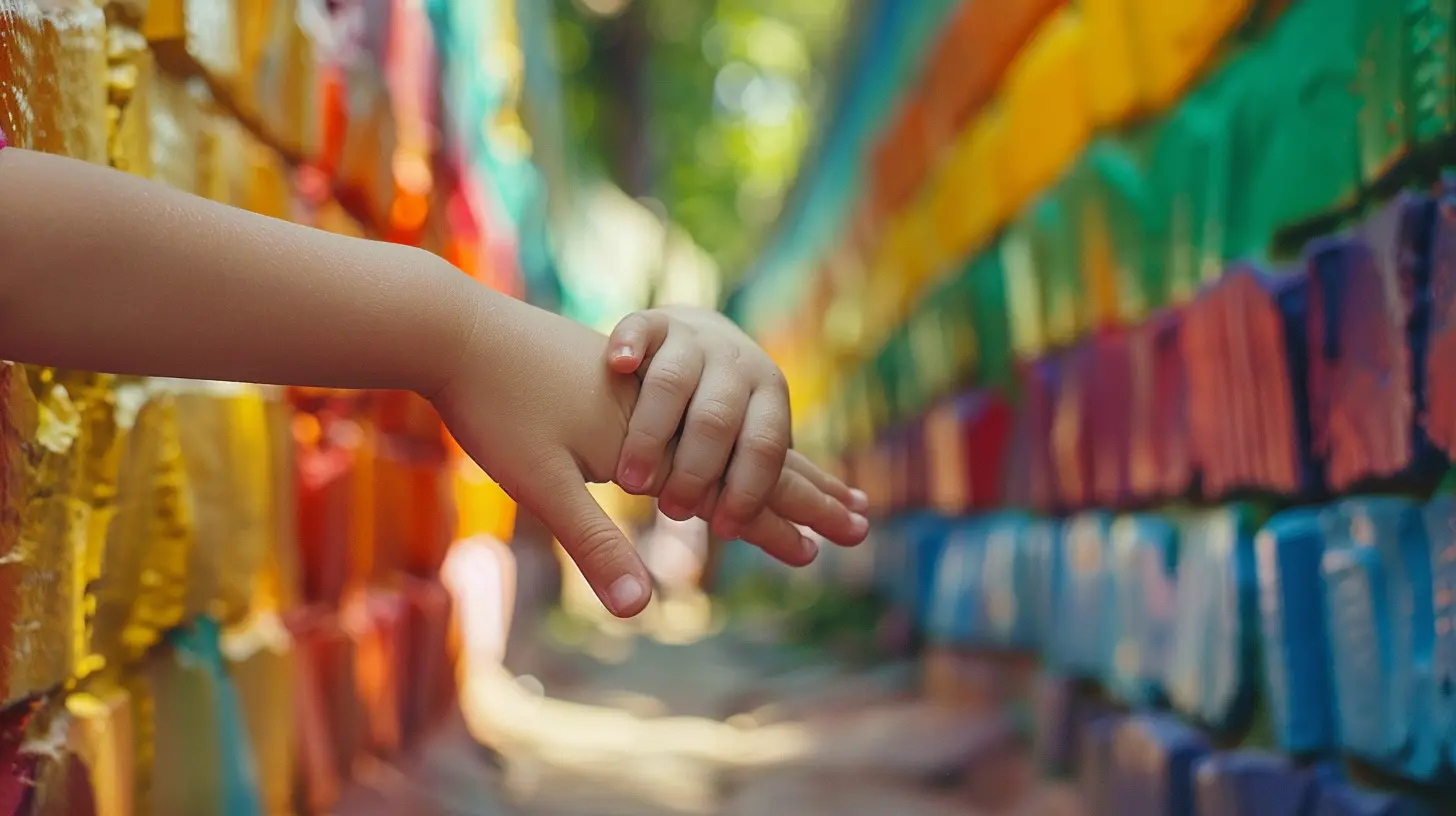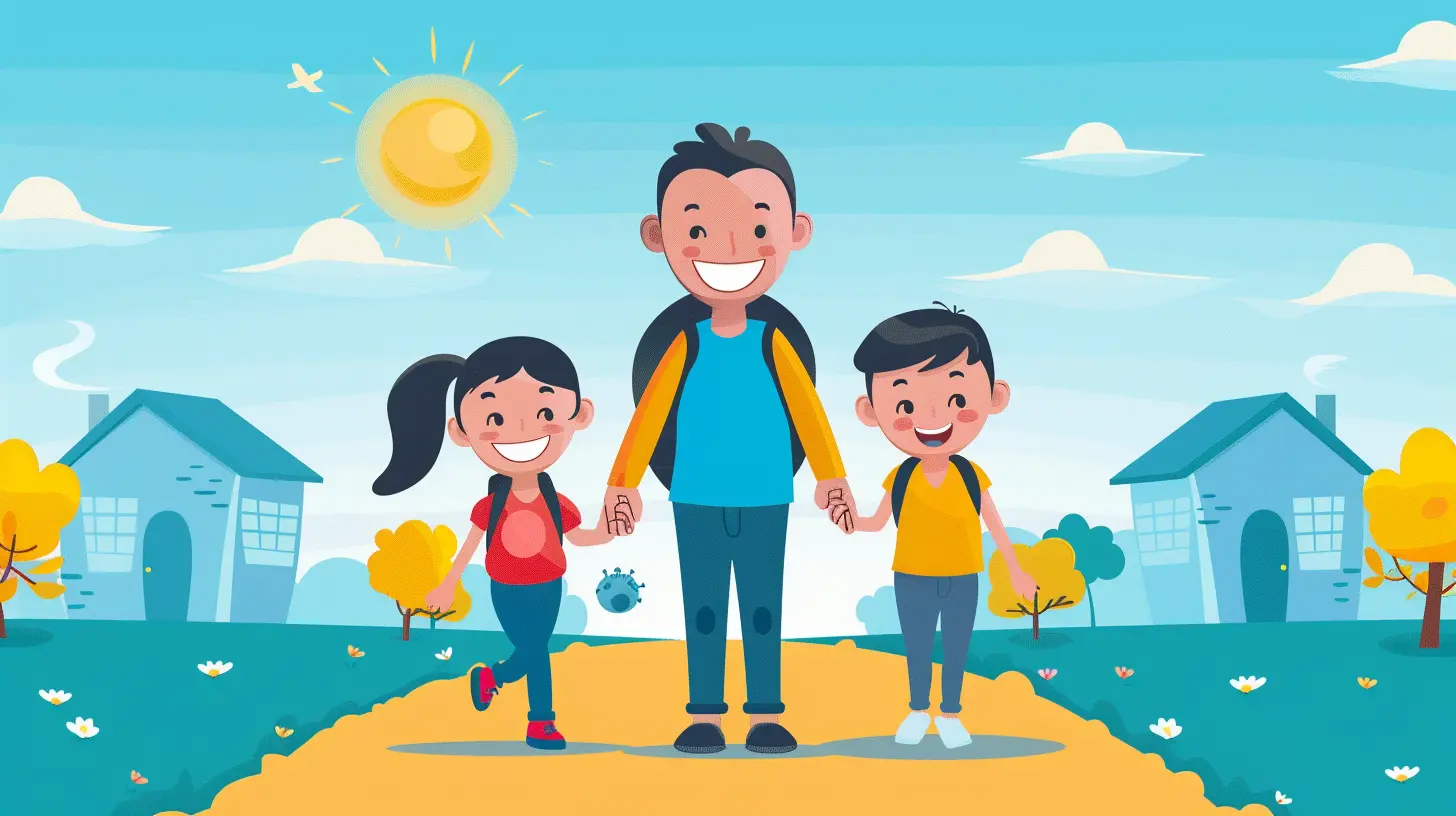Building a Strong Parent-Teacher Relationship in Preschool
28 August 2025
Sending your little one off to preschool is a huge milestone for both parents and children. It can be exciting, nerve-wracking, and even a little overwhelming. You’re entrusting someone else with your child’s early education and development, and naturally, you want to be involved in the process.
But here’s the thing—your child’s success in preschool isn’t just about what they learn in the classroom. It’s also about fostering a strong bond between parents and teachers.
A solid parent-teacher relationship lays the foundation for a child’s positive learning experience. When parents and teachers work as a team, children feel more secure, confident, and excited about learning. So, how do you build this strong partnership? Let’s dive in! 
Why is a Parent-Teacher Relationship So Important?
Think of your child’s preschool experience like a three-legged stool. One leg is the child, one leg is the parent, and the other is the teacher. If any of those legs aren’t sturdy, the whole structure can become shaky.A positive parent-teacher relationship:
✅ Improves communication about a child’s progress and needs
✅ Creates a sense of teamwork in supporting the child’s growth
✅ Helps address challenges early on instead of waiting until problems escalate
✅ Encourages children to feel safe, valued, and motivated to learn
When parents and teachers are on the same page, it’s a win-win for everyone. 
Effective Ways to Build a Strong Parent-Teacher Relationship
Now that we understand why this partnership is essential, let’s talk about how to make it work seamlessly.
1. Start with Open and Honest Communication
Communication is the cornerstone of any strong relationship. When it comes to your child’s preschool experience, keeping the lines of communication open with the teacher is key.- Introduce Yourself Early: Don’t wait for a problem to arise before contacting the teacher. A simple, friendly introduction at the start of the school year sets a positive tone.
- Be Transparent: Share any relevant information about your child, such as allergies, special needs, or specific fears. The more the teacher knows, the better they can support your child.
- Ask Questions: Don’t hesitate to ask about classroom routines, expectations, or how you can support learning at home.
Remember, teachers are not mind-readers! If something is on your mind, speak up.
2. Show Appreciation for the Teacher’s Efforts
Teachers put their heart and soul into shaping young minds. A little gratitude goes a long way in strengthening your relationship.- A simple "thank you" after school pick-up can brighten a teacher’s day.
- Sending a handwritten note or email expressing appreciation for their hard work makes a difference.
- Participating in teacher appreciation events or volunteering in the classroom shows your support.
When teachers feel valued, they’re more likely to go the extra mile for your child.
3. Be Involved, But Respect Boundaries
Being an engaged parent is fantastic, but finding the right balance is important. While teachers appreciate involvement, they also have a classroom full of little learners to manage.- Attend Parent-Teacher Conferences: These meetings provide insight into your child’s progress and ways you can support their learning journey.
- Volunteer When Possible: Whether it’s reading to the class, helping with events, or donating supplies, small contributions make a big impact.
- Respect Their Time: If you have a concern, schedule a time to talk instead of bombarding the teacher during drop-off or pick-up.
Think of it like a dance—stay close enough to support, but don’t step on anyone’s toes!
4. Support Learning at Home
Preschool isn’t just about what happens in the classroom. Reinforcing learning at home shows your child that education is important and helps them feel more connected to their teacher’s efforts.- Read together daily to build vocabulary and comprehension skills.
- Practice counting, shapes, and colors in fun, everyday ways.
- Encourage independence with simple tasks like cleaning up toys or putting on shoes.
When your child sees that both their teacher and parents are invested in their learning, they’re more likely to stay engaged.
5. Address Concerns Calmly and Respectfully
Not every day is going to be smooth sailing. There might be times when you disagree with a classroom policy, have concerns about your child’s progress, or feel frustrated about an issue. The key is to handle these situations with grace.- Approach with a Problem-Solving Mindset: Instead of accusing or blaming, ask open-ended questions like, “How can we work together to help [child’s name]?”
- Choose the Right Time and Place: A quick chat during morning drop-off might not be the best setting for a serious discussion. Request a meeting when both you and the teacher can focus.
- Stay Calm and Respectful: Teachers want the best for your child, just like you do. Keeping conversations positive will lead to better outcomes.
At the end of the day, both parents and teachers have the same goal—helping your child thrive.
6. Keep Teachers in the Loop About Big Changes
Kids are like sponges—they absorb everything happening around them. If there are big changes at home (a new sibling, a move, divorce, or even a family pet passing away), let the teacher know.Why? Because changes at home can affect a child’s behavior, mood, and ability to focus. When teachers are aware, they can provide additional support and understanding.
A quick email or chat can make a world of difference in helping your child feel supported in both environments.
7. Foster a Team Spirit
At the end of the day, remember that you and your child’s teacher are on the same team. You both want what’s best for your little one. By maintaining open communication, showing appreciation, and working together, you'll build a strong, positive relationship that benefits everyone.Your child will feel more secure, excited to learn, and confident knowing they have a solid support system both at home and in the classroom. 
Final Thoughts
Building a strong parent-teacher relationship in preschool doesn’t happen overnight, but with consistent effort, respect, and communication, it becomes second nature.Think of it like nurturing a plant—you need to water it with kindness, give it sunlight with appreciation, and remove weeds through clear communication. Before you know it, you’ll have a flourishing partnership that helps your child blossom.
So, take the time to connect, communicate, and collaborate with your child’s preschool teacher. After all, when parents and teachers work together, amazing things happen!
all images in this post were generated using AI tools
Category:
Parenting PreschoolAuthor:

Maya Underwood
Discussion
rate this article
1 comments
Alvin Wheeler
Fostering open communication and mutual respect between parents and teachers enhances children's learning and development.
September 14, 2025 at 3:02 PM

Maya Underwood
Absolutely! Open communication and mutual respect are essential for creating a supportive partnership that benefits children's growth and learning.


